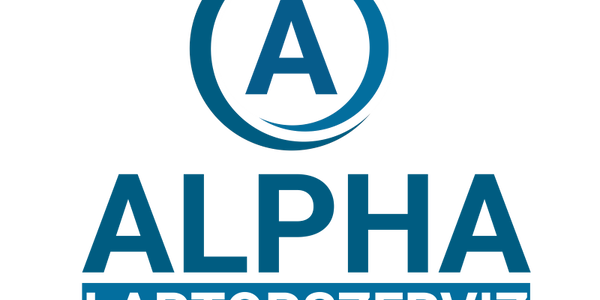-

GAMEPOD.hu

Új hozzászólás Aktív témák
-

Sinesol
veterán
válasz
 Fitzgerald
#80891
üzenetére
Fitzgerald
#80891
üzenetére
Ja hat probaljak összemosni a ket dolgot, közben meg semmi köze a kettönek egymashoz.
Amugy nem nevezhetö epp hülyenek, eleg komoly tudasa lehet az eletrajza alapjan, konkretan elegge benne van/volt a temaban, miközben a vele szemben allok nagyreszt amatörök.
Idezet az oldalrol:This is a bit about your host, Amir Majidimehr. I am writing this as to give more context to people reading my technical reviews and measurements. I have realized that without this context, many assume I am yet another blogger spitting out graphs. That is very true but let’s see if we can confuse them with an alternate reality!
Without giving away my exact age, I grew up in 1960s with analog electronics as my primary hobby. Learned that from my oldest brother who likewise had the same hobby and spent his nights and days designing electronics. This gave me an intuition for analog electronics which to this day serves me better any textbook or formal education.
Speaking of formal education, I naturally aimed to get an Electrical Engineering degree which I received in early 1980s (still trying hard to not give away my age!). During that time though, the personal computer revolution was upon us and I quickly fell in love with my second hobby: software. I programmed my Apple II and later managed the computer lab at the college where I wrote a bunch of custom software including an editor all the students used to write their programs.
During schooling, I worked at an electronics repair shop, fixing everything from audio equipment to VHF radios. That childhood experience really got cemented combined with a new skill of having to troubleshoot equipment, usually with no schematic. All in all, I repaired hundreds of pieces of equipment, getting a good feel for quality engineering versus not.
Back to the degree, once I graduated, the first job I found was actually software, not engineering. I became a Unix “kernel” (Operating system) developer working on then new, Unix operating system. That gave me another baptism by fire having to learn nearly half a million lines of code with nary any documentation. This was at a large minicomputer company producing systems costing nearly $300,000. Kernel work gets you pretty close to hardware and during that time, I got a very deep understanding of it. This was a good thing as Unix became the foundation for much of what we use today from Linux to Android, MacOS and Windows.
In late 1980s I had an opportunity to work at the computer division of Sony. Initially the job was building a software team to develop Unix but we proposed and won approval to design and build our own hardware to go with it. There we went deep, developing our own ASICs (large scale custom electronic IC), motherboards, audio subsystem, power supply, LCD display etc. Working for Sony was great as at that time they were in their peak of success and their quality standards were quite high. We combined that with great engineering from US in silicon valley and really pushed state of the art in design and simulation at that time.
It was during that time that I got exposed to products of a then new company, Audio Precision (AP). They had overnight obsoleted audio measurement products from likes of HP (now Agilent/Keysight). I bought one for the team but I was the only one who learned to use it. It cost a cool $25,000 which at the time (early 1990s) was quite a lot of money. Still is today.
Sony fell on hard times after acquiring Columbia Pictures so my team was let go. I was offered to stay there but I got bored and left. In return for some consulting though, I got to keep that original AP (which I later gave to my brother -- the unit I have now is much newer).
Having developed my hardware skills, the next two companies I worked for also developed hardware and software: Abekas Video Systems and Pinnacle (now part of Avid). There, I managed hardware, firmware and software engineers development high-end hardware for real-time effects, switching, graphics, editing, etc. I am fortunate enough to have managed a very smart team which won two technical Emmy Awards.
By then a new development was happening: the web. I had worked extensively on networking which was the underpinning of the Internet. The advent of browsers took that to a new level and I wanted to be a part of that. So when my ex-boss from Akekas called me to say he was leading a Stanford-university start-up that was streaming video on the web, I jump at the chance to lead engineering there.
This was in the days of dial-up modems and trying to send video and audio through such slow link was nothing short of a miracle. Still, we managed to do it well enough that the company got acquired by Microsoft back in 1997 (https://news.microsoft.com/1997/08/...timedia-strategy-with-release-of-netshow-2-0/).
I specialized at Microsoft in driving our technology through other products than just the PC. At the time everyone was the enemy of Microsoft it seemed so it was a big challenge. At the end, we did it with our products literally shipping billions of other devices and every Blu-ray player. Only Apple refused to ship and use it. To date, those products all generate significant royalty stream for Microsoft, long after I am gone from there.
During my time at Microsoft, as VP of Digital Media Division, I grew to manage a division of nearly 1000 engineers, testers, marketing and business development people. One of the groups I managed though was the signal processing team which produced audio and video compression technologies. Both of those relied on refreshing my knowledge of the core signal processing science back in college and learning a ton more about new domains like psychoacoustics. Formal and controlled testing was a part of that just the same. Through training, I became an “expert” in finding difficult audio distortions that many could not. This training is serving me well to this day in being able to pass audio objectivist challenges of blind tests of small distortions.
I am very proud of the accomplishments of my team at Microsoft as it led to winning yet another technical Emmy award (see https://www.flickr.com/photos/seanalex/351987677. I am the one on the right). I also received an incredible education working with my many top engineers from audio processing to streaming and audio subsystem in the OS.
I retired from Microsoft back in 2007 (officially left in 2008) and created a start-up which was acquired by Fortune 50 companies. I currently own a system integration company, Madrona Digital, that does security, audio/video, lighting, networking, etc. for mid to high-end homes and commercial buildings (no retail sales). This gives me great exposure to the industry and the “back story” of it.
So what does this all mean? Well, it means that I am very familiar with many aspects of the systems we talk about. I am comfortable talking about networking and streaming one minute, and good power supply design the next. Hey, we could even talk about patents, business aspects, etc.
No, it doesn’t mean I know more than anyone in these fields. Many people have more experience than me in their deep vertical. What it means is that I have a broader set of experiences than most, and I have the knowledge to dig deep and analyze what is going on after some 40 years of being immersed in all aspects related to audio and technology.
Here is a list of technologies I feel very comfortable in:
1. Computer architecture, hardware design, networking, operating system, memory management, system architecture, etc.
2. Internet protocols and streaming technologies
3. Audio/Video signal processing, compression, psychoacoustics, controlled/blind testing
4. Analog and digital electronics
5. Sound reproduction in rooms (learned post retirement from some of the best teachers one can have such as Dr. Floyd Toole)
6. Audio measurements and analysis.
7. Bad sense of humor which you will see peppered in most of my writing.
So there it is. No more complaining about who this idiot is that is writing these articles.
Új hozzászólás Aktív témák
Hozzászólás előtt olvasd el az összefoglalót!
A topikban terméket, munkát, szolgáltatást hirdetni tilos!
- Videoteszt Erősítők tápellátása 2.
- Tudástár Parazitaeffektusok az áramkörben 1.
- Tudástár Melyik áram merre folyik a NYÁK földhálózatán?
- Tudástár Erősítők tápellátása
- Bemutató DSD: divatőrület vagy a zene új dimenziója?
Állásajánlatok
Cég: Ozeki Kft.
Város: Debrecen
Cég: Alpha Laptopszerviz Kft.
Város: Pécs




 Bodz
Bodz

